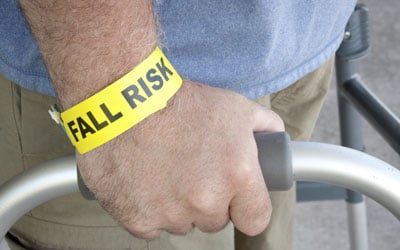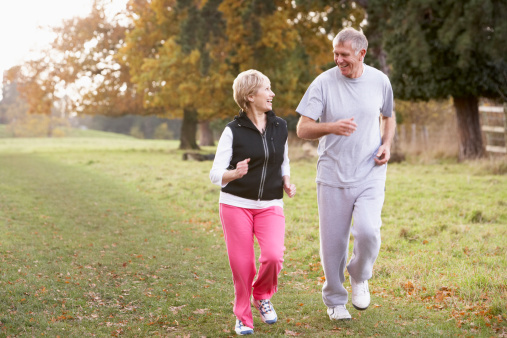A third of all older adults fall every year, but less than half of seniors discuss fall-related concerns with healthcare providers, according to the Centers for Disease Control and Prevention (CDC). This is particularly troubling considering that falls are the leading cause of both fatal and nonfatal injuries in seniors. Read on to learn more about falls and older adults, along with preventative measures caregivers can take to ensure the ongoing health and safety of the seniors in their care.
A Closer Look at Falls and Seniors
Millions of older Americans fall every year. Just how severe is the problem? The CDC determined that in 2013 alone, U.S. emergency rooms treated 2.5 million nonfatal senior falls resulting in 734,000 hospitalizations. Common fall-related injuries include lacerations, hip fractures and head traumas. Unfortunately, these injuries can not only detrimentally impact your aging loved one's mobility and independence, but can also increase the risk of premature death.

In addition to injuries from falls, seniors also suffer from another troubling phenomenon: fear of falling. Even seniors who survive falls with no injury can develop a fear of falling, leading to limited activities and loss of strength and flexibility. Unfortunately, this becomes a vicious cycle: the corresponding decrease in physical fitness may actually increase the risk of actual falls.
Fall Prevention for Seniors
Caregivers can help seniors reduce their risk of falling and remain independent in several proven ways.
Regular exercise is essential in helping seniors improve balance and gain strength. Check in with local senior centers and community groups to find out about fitness classes, such as Tai Chi, for older adults. Even seniors with limited physical fitness can increase their abilities over time.
It's important for caregivers to offer gentle support if seniors push back against a new exercise regimen. One way to get your aging loved one on board while also deriving benefits for yourself? Join in their routine.
Also, take time to fall-proof your aging loved one's home. Cords, wiring, newspapers, and other debris are hazardous when underfoot. Living spaces should be free of clutter with clear, well-lit pathways between rooms. Grab bars, railings, and other assistive devices further protect seniors against falls.

Daily weight-bearing exercise, like walking,
can help build strength and prevent falls.
Your aging loved one's physician can also play a vital role in fall prevention. Make sure your loved one's eyes are checked annually. Additionally, because older adults may suffer from inadequate vitamin D, ask your loved one's physician to check his/her vitamin D levels and/or screen for osteoporosis, if necessary. Lastly, ask the doctor or pharmacists to review all medications to determine that they're free of interactions like drowsiness and dizziness.
Falls and fear of falling don't have to be facts of life for seniors. Caregivers and physicians alike can offer valuable partnerships in preventing falls and safeguarding senior health. For more useful caregiver videos on falls, fall prevention, fear of falling, and a multitude of other issues affecting seniors and the people who care for them, visit mmLearn.org.
mmlearn.org offers a large library of free videos for caregivers of older adults, covering topics pertaining to senior care. Whether you are a healthcare professional or a family caregiver, if you are caring for an older adult we know that you will find mmlearn.org an essential learning and guidance tool for all of your caregiver training needs.

